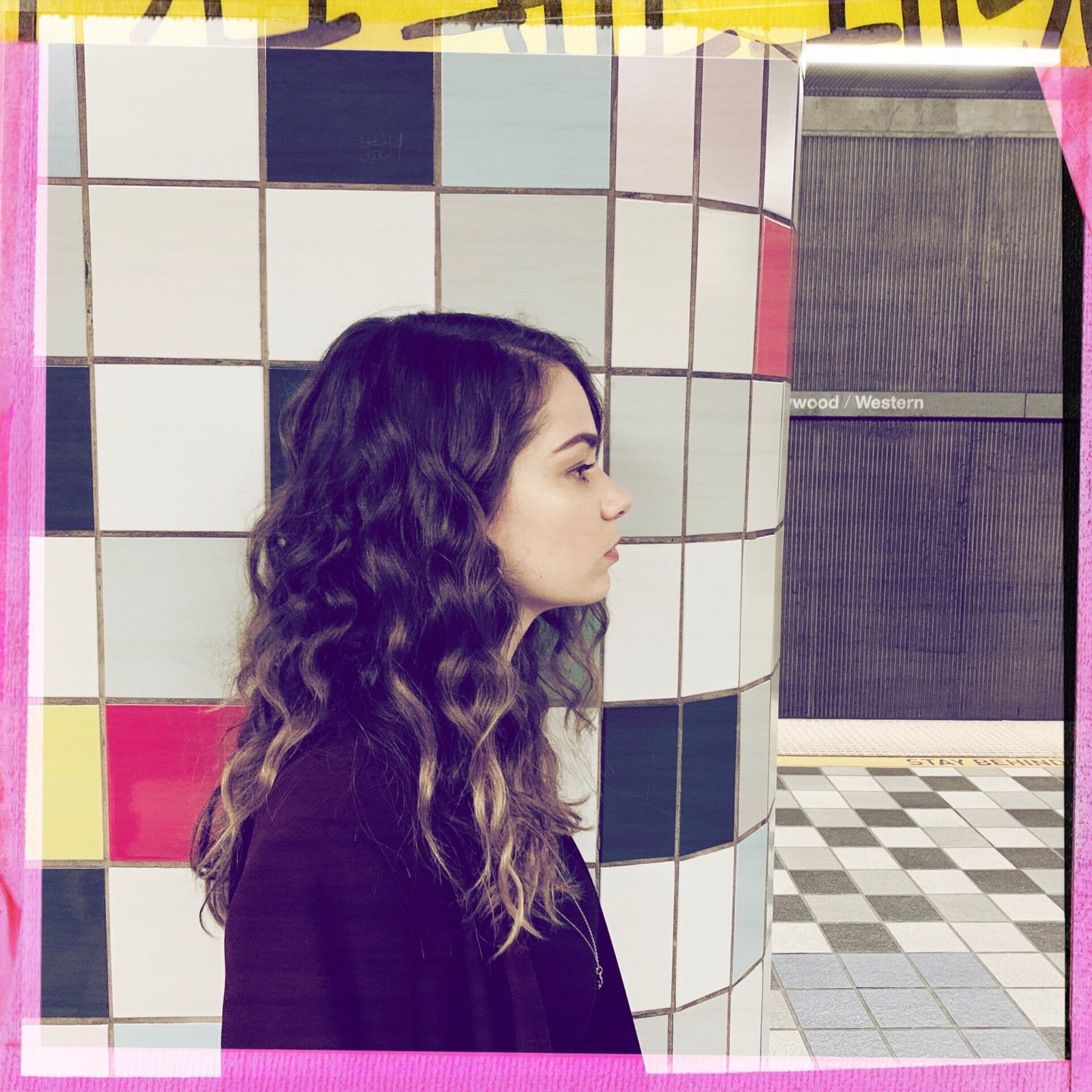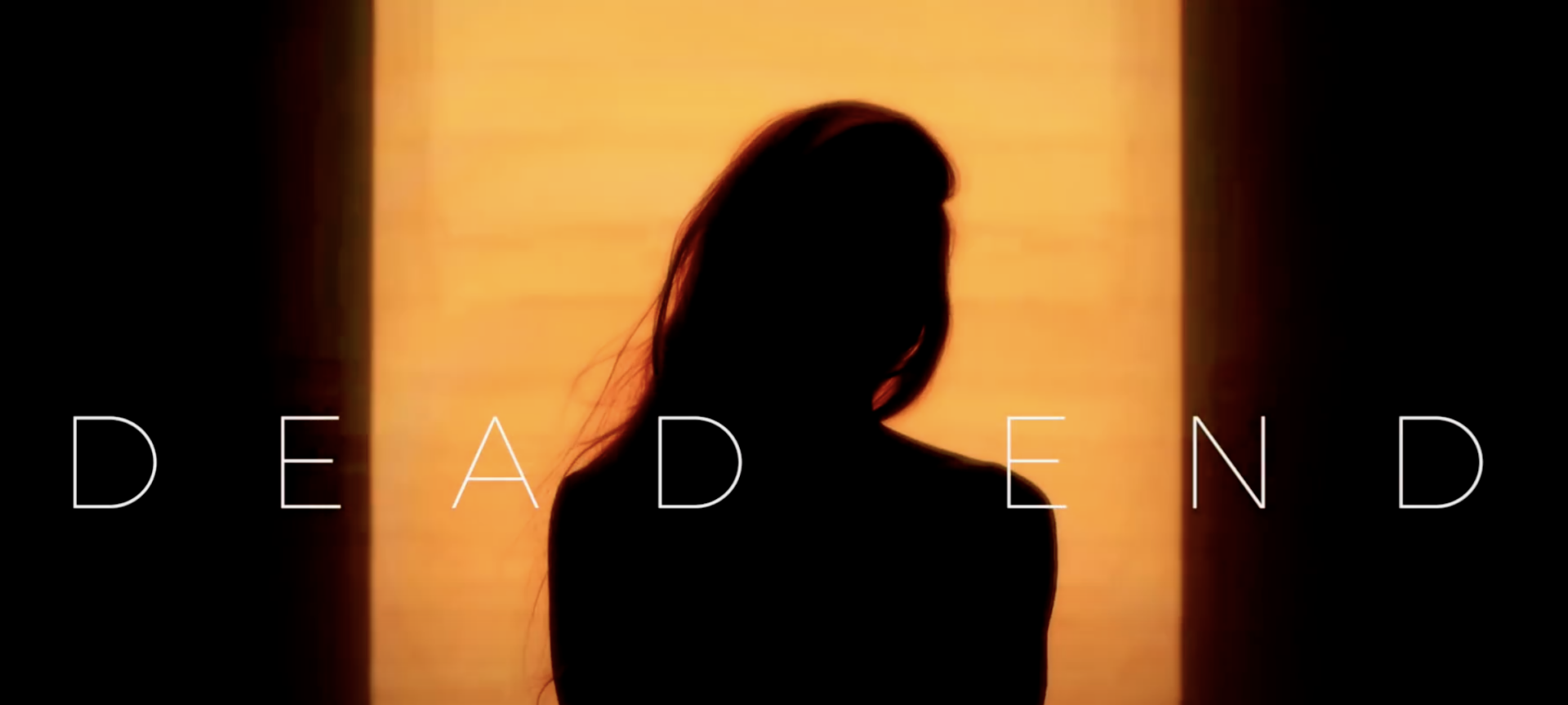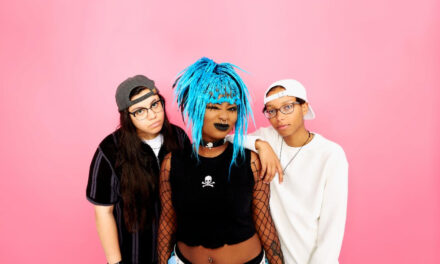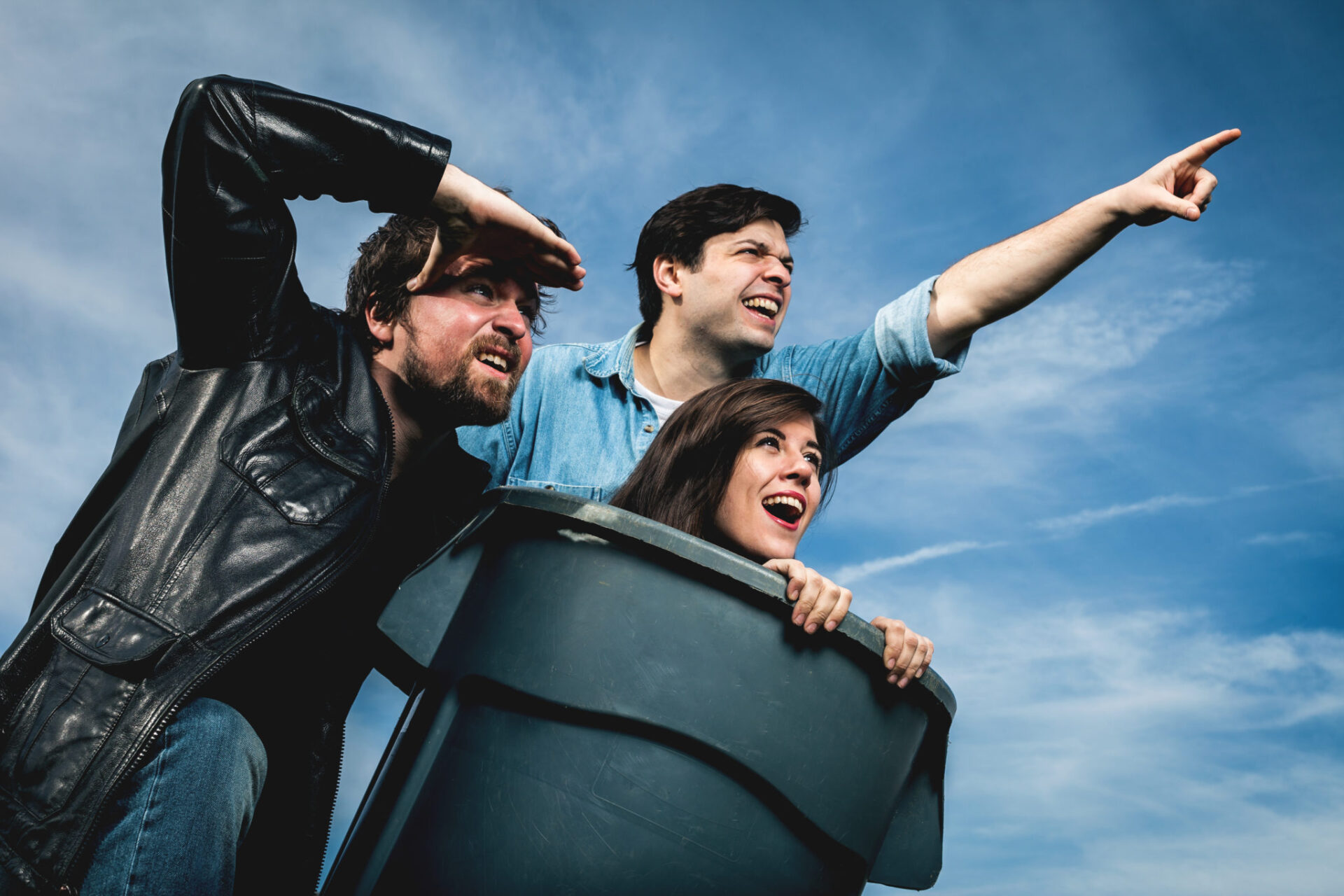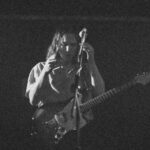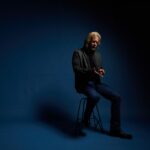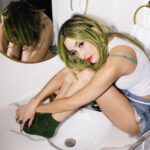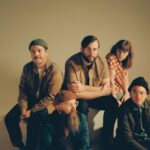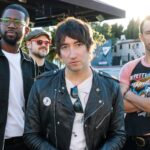Sometimes when you interview artists, especially within the frame of releasing their first full body of work to the world, there’s a real sense of relief. Jubilation, even. In talking with Minke, named Leah Mason, not only is there a real sense of confidence, there’s a genuine love of music seemed to radiate in every word she said. It takes years upon years of devotion to your craft to bring that essence out of you.
Minke has recently released her first EP, The Tearoom which is a seven song cohesive collection of work ranging from topics of love and the need of human emotion versus impersonal digitization. As she began her music career at eighteen, it seemed like all roads led to this particular body of work. After working on these songs for almost three years, Minke is able to combine her beginnings rooted in blues guitar and the catchy, intricate settings of pop music. It’s a mix that she can call her own.
We caught up with Minke to talk about the process behind the creation of The Tearoom, the inspiration behind some of the songs, and more.
When you first started releasing music, you released it under your real name, Leah Mason. Now you go by a new moniker in Minke. I’ve spoken to other artists who have started off one way and re-birthed themselves. With The Tearoom, you still have the bluesy rock of the past mixed with pop sensibilities. How was the process of making Minke and melding the two worlds together?
It was just a natural revolution of getting older. I grew up in rock music, but it became more and more restricting as I was hearing new types of music and discovering new technologies. Just new ways to play guitar and different genres. Minke was born from that idea of mixing that with more pop song and lyrically singing about what was actually going on. Instead of writing about the crossroads and singing at a bar in Nashville. That wasn’t really my reality.
Just the idea of changing the name, specifically, I wanted a fresh start. I wanted people to take it seriously who had already heard of Leah Mason. I didn’t want them to say, “oh! I’ve heard of Leah Mason and I did (or didn’t) like it.” I didn’t want there to be any kind of judgement on it. I wanted people to hear the music for what it was. I hid my identity for the first month because I really wanted people to focus on the music.
I read that you recorded The Tearoom in a bunch of different places. From LA, New York, and London just a name a few. Also in pool houses, bedrooms, etc. How was it recording the EP in all these different locations? I would assume you would draw different inspiration from each setting.
The great thing about working with Rory Andrew, who’s a producer on the majority of this record, is that’s where the cohesion comes from. A lot of times it was really chasing Rory around [laughs] and wherever we could get time in to finish songs that we started. It was such a joy to be able to do that. Being able to hear these songs in different places puts you in a different perspective. Maybe changing things, here and there, with fresh ears and fresh environments. It just keeps things exciting and inspiring. It was over three years or so getting all these songs done.
I wanted to talk about the songs from the EP and start with “Gold Angel.” You had sat on it for a while because some people in the industry claimed that it wouldn’t work. When you released it, it got a really positive response and blew up. How did it feel for you following your own instinct and beating that projection?
That song exceeded any expectation that any of us had, honestly. I was confident in how much I loved it and how representative of it was of the project, so it kinda had to be the first song that we put out. It was really gratifying and humbling to know that people were listening to it. I did play it for a number of people before it came out. Some people liked it, some people didn’t. At the end of the day, things are subjective. It was really a cool experience to have. I was very lucky.
There’s “Maybe 25.” You have a good way of getting themes out lyrically that are unique to your style. A lyric that stuck out to me was, “I smile like I’m supposed to/And we say goodnight/Save it for the post then.”
This song is about your experiences with online dating and really how impersonal it can be. It’s a trade-off of losing human experience and dialing yourself down to a profile for people to pick and choose. From this song and experience, did you realize more of importance of actually talking to someone, human embrace vs just a screen?
Absolutely. I think the theme of tolerance and being open with everybody, humanity even is really important to me. Especially that we’re now in a world that is so divided. I’m in America a lot, but I’m from the UK. In both places, it feels like there’s this strange divide. No one is really listening to each other. Everyone’s right. I always believed in trying to be as open as possible and really listening.
Subconsciously, it’s in the music, for sure. Human connection and listening to each other. That all leads to something better. These songs started in dating in very different ways. Dating a religious guy moving to online dating. Those became even bigger ideas of overall connection.
So with “Too Late,” you worked with Blake Harnage. He’s worked with bands like Versa and PVRIS. This song is very layered instrumental wise. Another lyric that stuck out to me was: “But don’t bring her home and lead her to fall for you/Until you find whatever it is you’re looking for.” The way I took that in a relationship sense is that instead of looking for what we need within ourselves, we look for it in other people first. The Tearoom as a whole is you finding yourself through all these experiences. How does this song tie into the ‘coming of age’ feeling of the EP?
This was a pretty raw one – this song. The lyrics, that was a very direct type of message to something particular on that certain day. That’s just what had happened. Listen, we’ve all been through stuff like that. I think it resonates so well because everyone has had that feeling, that thought, or that anger. That “Fuck You.” Then you calm down, move on, and try to be understanding. It’s best to do that, but at the time, you’re pretty pissed off.
That’s the most recent song on the EP. I’m still learning. I’m still getting over it [laughs]. Still moving through the world like everybody else and trying to figure things out. I’m glad I was that honest on that song because a lot of people have felt like that and listening to it, it may make them feel better.
The music video for this song is directed by Aisha Tyler. All of the visuals for this EP so far have been directed by women. There’s a certain synergy to them that feels like only another female can identify with. How important was it, especially from a visual standpoint was it to have a women’s touch to them?
Very important to me, actually. I don’t think that a man couldn’t do it. They definitely can. Actually, my DP Cale Nichols has been my collaborator for life. He’s behind the camera and plays a huge part. Having a female director, I don’t know what it is about it. I think it brings a certain energy throughout the whole creative process. For instance, when you’re deliberating a concept right at the beginning. I feel really comfortable with another woman just in a way we talk to each other versus a typical male director.
From there, on set it’s really nice to have someone really powerful, knows exactly what they’re doing, and you can feel completely confident in them. Also, with that, concepts that perhaps a guy can’t fully understand from a female perspective. I’m not saying that a guy can’t do this. I’ve just had a joy with working with female directors over the years. My director Tess Elliot Harrison who worked on two videos, is a bad ass bitch.
It’s been really easy. Especially dealing with concepts like relationships and love. Just my personal relationships. They are friends of mine, so they have an insight on how I’m feeling and what I was going through.
“Frantic Love” is one of my favorite songs on the EP. Especially from a musical composition standpoint. You meld these pop songs and bring in your guitar background. There’s this funky guitar rift after the first chorus and then you add it to the bridge playing off voice echoes. Did you go in the recording process stressing the feeling of keeping your beginnings in blues rock alive?
It is important to me. Musicianship in general is very important to me. It’s kind of all I know how to do. I can’t be Rihanna. It’s still exciting for me to play the guitar still. I’m happy when I’m just lounging around the house with a guitar in my hand. It’s my job. It is important to me, but it’s a very natural thing. Some songs naturally come out more like this than others.
With “Frantic Love,” I had that rift and I had a concept that I brought into Rory. Sometimes I’ll just bring in the lyrics or sometimes it will be some chords. I brought that as a blues rock riff. It felt natural writing the song going into that direction.
We also went and said, “let’s just write something totally random.” Sometimes, there is a conscious decision of “this is going to be a big pop chorus, so let’s try to keep it under four minutes.” “Maybe we don’t need to put an instrument like a didgeridoo on this. It may sound a bit weird.” It’s not all based around that, but sometimes, that’s a consideration. ‘Frantic Love’ was born out of not thinking about that. It ended up being one of my favorite ones on the record. Especially because I’m such a guitar nut. So live, I get to go wild with an effects pedal and a solo. It’s just really fun for me.
Bringing it back to Rory and the song, “Bite The Bullet.” This was like the “aha” moment of the EP. With this song coming together, how did it feel when it came together and you were like, “oh, I can do this. This is something special”
It felt like a real relief. That’s was the overall feeling. Then it was excitement. The thing about it was it was two things in one day. Two really big things for me, personally in one day. The main thing was I had been looking for a collaborator for the new project who really understood what I wanted to do. I was saying to people who I wanted to do something where I still got to do guitar rock stuff, but I can do more pop personal songs. I couldn’t find a collaborator who got that and what I was hearing in my head. Basically what the whole project was about from a production standpoint.
It was such a giant win to finally find that collaborator where you’re like, “ah! he understands what is in my head and how I want to go about this whole project.” That was huge. Then the fact that the first song we wrote, being ‘Bite The Bullet,’ that was a journey for me from a first love, breakup situation. I think I carried it around for a little bit longer than I should have and it was probably affecting me in ways that I didn’t realize.
Those two events happening on the same day were very lucky, eventful, somewhat dramatic and emotional. You’ll have somedays where you feel like your life might have shifted a little bit.
You recently played at SXSW and have some tour dates coming up with Kevin Garrett and X Ambassadors. How excited are you to get out there and play some songs of the EP? I can imagine fans are going to be very receptive to them.
It’s a first in that now I have my first EP out. My first collection of songs. To see the reaction on people’s faces, I saw it a tiny bit at South By. The songs are starting to connect with people. To see that right up close and now, I’m starting to get a lot of messages like how people love this song and tied it to one thing. Or that they’ve cried to this song. I can’t wait to see everybody and get sucked in. Obviously, I’m doing it with such incredible bands who I know on a personal level have been really supportive.
Kevin, I met last year. First time we sang together, it was in front of like 4,000 people, which was terrifying. But he’s such a lovely, calming presence. With the X Ambassadors, I’m going to genuinely seeing the gigs every night. I’m really hyped.

